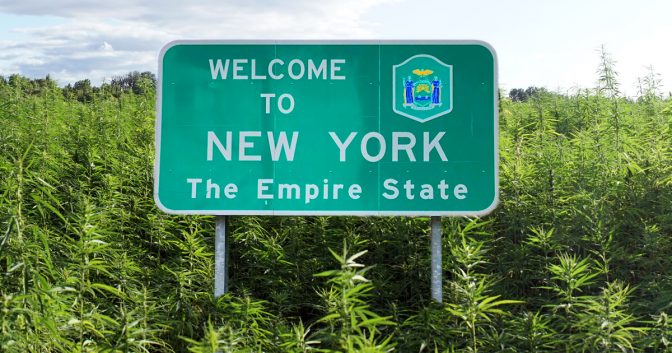Task Force Recommends Regulating Recreational Cannabis in New York

With New York now bordered by several states (Massachusetts, Vermont) and one country (Canada) that have legalized marijuana, the state’s Gov. Andrew Cuomo, in January, assembled a task force to look into doing just that in the Empire State. The task force, under the auspices of the state’s Department of Health, issued its report on July 13. The findings are stunning:
«The positive effects of a regulated marijuana market in New York State outweigh the potential negative impacts.»
• «Areas that may be a cause for concern can be mitigated with regulation and proper use of public education that is tailored to address key populations. Incorporating proper metrics and indicators will ensure rigorous and ongoing evaluation.»
• «Numerous New York State agencies and subject matter experts in the fields of public health, mental health, substance use, public safety, transportation and economics worked in developing this assessment.»
«No insurmountable obstacles to regulation of marijuana were raised.»
• «Regulation of marijuana benefits public health by enabling government oversight of the production, testing, labeling, distribution, and sale of marijuana. The creation of a regulated marijuana program would enable New York State to better control licensing, ensure quality control and consumer protection, and set age and quantity restrictions.»
«New York State would be one of the largest potential regulated marijuana markets in the United States.»
«As such, there is potential for substantial tax revenue in New York State, which can be used to help support program initiatives in areas such as public health, education, transportation, research, law enforcement and workforce development. Tax revenues can also support community reinvestment in health care and employment.»
«Historically, marijuana criminalization has had a profound impact on communities of color and has led to disproportionate targeting of certain populations for arrest and prosecution.»
• The over-prosecution of marijuana has significant negative economic, health, and safety impacts that have disproportionately affected low-income communities of color. Legalization of marijuana will address this important social justice issue.»
• «The development of this assessment involved discussions of numerous issues that relate to implementation of a legalized marijuana program, rather than the impact. Much of the impact of a regulated marijuana program is contingent on program implementation. While some implementation issues have been described in this assessment, further exploration will be required should New York State move toward legalization.»
Based on ounce prices ranging from $297 to $374 and a tax rate between 7% and 15%, the report determined that total annual sales in New York State would range from $1.6 billion to $2.9 billion and tax revenues would range from $248 million to $678 million.
Other Report Highlights
• «Marijuana may reduce opioid deaths and opioid prescribing.»
• «The majority of credible evidence suggests legalization of marijuana has no or minimal impact on use by youth.»
• «Legalizing marijuana results in a reduction in the use of synthetic cannabinoids/novel psychoactive substances.»
• «There has been no increase in violent crime or property crime rates around medical marijuana dispensaries.»
• «Marijuana possession is the fourth most common cause of deportation nationally.»
• «Legalization provides an opportunity to educate consumers on what their options are and encourage the use of products with lower doses of THC.»
Read the entire «Assessment of the Potential Impact of Regulated Marijuana in New York State» report here.
Related Articles
How Massachusetts Became a Leader in Regulating Marijuana
Summary of C-45, the Bill That Legalized Cannabis in Canada
New Jersey’s Path to Marijuana Legalization
States Where Cannabis Is Legalized, Decriminalized or Medicalized
If you enjoyed this Freedom Leaf article, subscribe to the magazine today!

